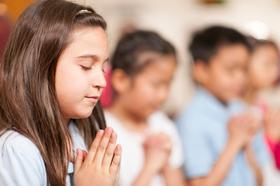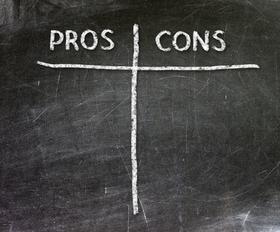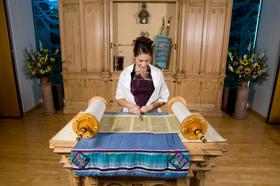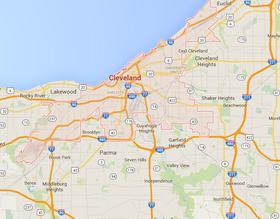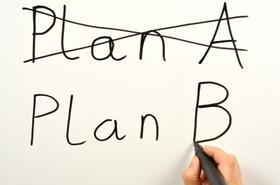As you think about sending your child to private school, there are so many choices to consider that, for most of us, we shut down. It is simply too much to deal with all at once. That is the point of this little essay. I don't recommend dealing with all those heavy-weight questions in one pass. Take each one and work through it systematically from beginning to end. Then move on to the next question. In other words, break the project into bite-size pieces just as you do with any big project or challenge in your professional life.
Use your tablet or smartphone to record your ideas, thoughts, and questions. Google Drive, OneDrive, or Dropbox will help you share your findings and data with interested parties, such as your spouse and trusted legal and financial advisers.
OK, let's get to those big questions. Each one needs to be discussed and reviewed thoroughly. The results of your discussions will impact the next issue.
Boarding school or day school?
This fundamental question needs to be sorted out first. Why? Because the answer to it drives everything else in so many ways. I can hear some of you thinking, "Boarding school? I would never think of sending my child to boarding school." Indeed, you may have some legitimate concerns about not wanting to send your child to a residential school. But in the long run, perhaps that is best for your child.
What is your genuine concern? Finances? Letting your child go? Something else? You need to work through those issues at this stage and deal with them. Boarding schools typically have financial aid programs. The amount of money they may award you might very much surprise you. You won't know until you ask.
Are you letting your child go? Ah! I can relate to this issue. It is not easy to let your baby out of your sight. You have been there and done that. But perhaps boarding school is what she needs to advance to the next level of her maturation. If you and your spouse have full-time careers, I recommend considering boarding school as a viable private school solution. Supervising teenagers is not a part-time job, after all. As long as you are OK with a good school day if supervision during the after-school hours and weekends, you can provide 24/7 supervision for your teen; consider boarding school.
Religious school or not?
It does not matter what religion is involved. When your religion matters to you, you will want to seriously consider your private school options from a religious perspective. This consideration typically applies more to day schools simply because there are so many more days schools. However, it is a valid consideration to consider boarding schools as well.
The following video gives us an idea of how religion permeates a Jesuit high school's daily life and work.
Private schools come in three religious flavors. Heavy-duty, light, and non-sectarian. I use the term heavy duty to describe schools where attendance at chapel mass or religious services of a specific kind is mandatory. Note: the term applies to just about any religious denomination you care to think of. Not simply Christian, Roman Catholic, Quaker, or Jewish. If religious education and practice are a significant part of the school's mission statement and matter to you and your family, this is an important consideration. Schools with a light religious component are the ones that have less of an emphasis on religious teaching and observances. Non-Sectarian schools do not avoid religion. They stick to a broader or more ecumenical interpretation of religious teachings.
As you explore schools from the point of view of how they fit into your religious beliefs and requirements, be prepared to ask some probing questions.
Large or small?
Here, we are talking about the size of the school itself as opposed to class size. Small classes of 12-15 students are pretty much the norm in most private schools, be they boarding or day schools. Indeed, it is one of the attributes that we parents are willing to pay for when we send our children to private school. Small classes mean more individual attention to students' needs and student-teacher interaction. Those are good things worth paying for.
No, what I have in mind is the number of students on campus. The small school typically will have 150 to 300 students. Medium-sized schools run 300-500 students. The larger schools will top out at approximately 1200 students. You will decide whether to send your child to a large or small school based on your visit to the school. Do not cross a school off your shortlist simply because it is too small or too large. You won't appreciate the school community and how it works until you have visited it. One of the aspects of private schools you need to check out is their house system. House systems break the large student body down into smaller multi-age groups. Houses compete in sports and other areas. The idea is to promote teamwork and collaboration. Houses are essential to building a robust and vibrant community in any school.
Traditional or progressive?
If you sent your child to a Montessori or a Waldorf school, you already understand how progressive schools work. Progressive schools are not about testing and grades. While most of us think that approach works very well in early childhood education, some wonder how the progressive approach works in middle and high school. Does it prepare students for college-level work? It does indeed. But like any educational philosophy, you must understand and embrace it.
The following video gives us a glimpse into the approach used at The Putney School in Vermont.
Needless to say, traditional schools far outnumber their progressive counterparts. Among conventional schools, you will want to examine carefully what is being taught and how it is being taught. If preparing your child for college is essential, always find out where recent graduates matriculated. Are those colleges and universities ones you can see your child attending? If not, then you need to look at other schools.
Those are the significant questions you must consider when deciding which private school will be the best for your child. As I have said many times, the best school for your child is the school that fits best. Answer these four major questions entirely, and you will apply to at least three private schools that will be an excellent fit for your child and your requirements.
Questions? Contact us on Facebook. @privateschoolreview
#privateschools #schoolchoice





